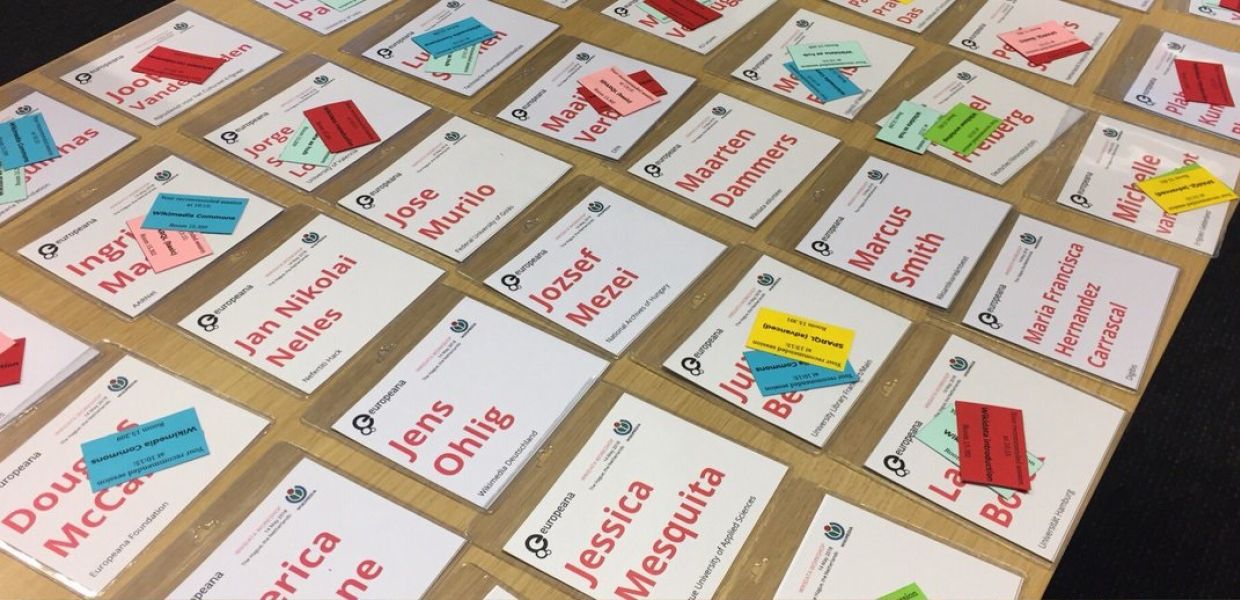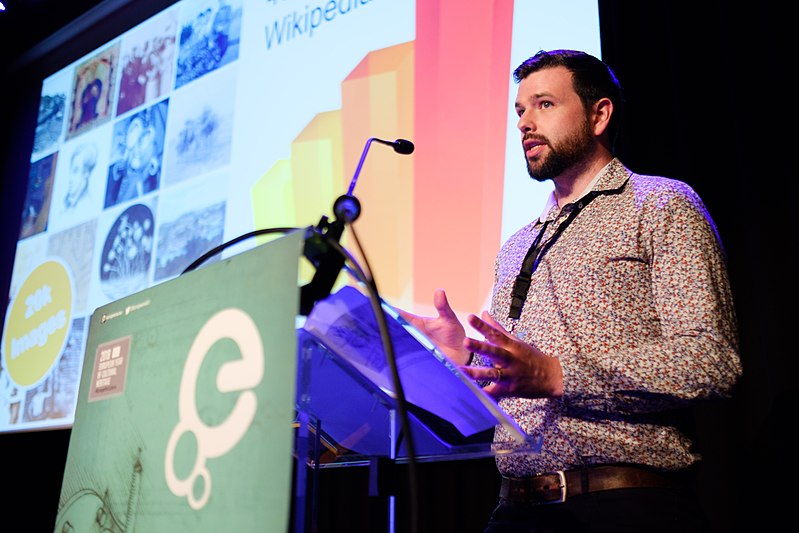Harnessing the power of structured data: a Wikidata workshop
Learning how to share to, build upon, and research with Wikidata were the key lessons from EuropeanaTech 2018. As more cultural organisations proactively engage in freely licensed structured data, Europeana is helping network members gain skills.

- Title:
- Lanyards waiting for their owners at the Wikidata Workshop the day before EuropeanaTech
- Creator:
- @wittylama
Europeana aims to foster close ties with the Wikimedia community, working together to preserve, document, and present digital cultural heritage for everyone to use and reuse. To that end, the 2018 EuropeanaTech conference had a definite focus on the newest and fastest growing wiki - Wikidata - the free knowledge base that is the structured-data variant to Wikipedia. It was a focus for many speakers during their presentations, a topic of conversation during breaks and meals, and attendees chimed in on Twitter to identify it as ‘the focal point’, highlighting its ‘massive opportunities’.
Why should you learn SparQL ? WIKIDATA! or how #EuropeanaTech is bringing me home with the will to do SparQL queries. #wikidata https://t.co/4qTApDI2eN
— Camille Françoise (@CMFrancoise) May 17, 2018
@subsublibrary "wikidata is the focal point", shows all the great opportunities of wikidata for the future of cultural heritage usage. Very clearly talks about the #webwewant at #europeanatech #digitalhumanities #wikipedia #openglam #lodlam pic.twitter.com/MwiTN7YTlT
— Jolan Wuyts (@JolanWuyts) May 16, 2018
How about using Wikidata as a name authority thesaurus? #EuropeanaTech pic.twitter.com/kKf4Xk8rLC
— Jens Ohlig (@johl) May 15, 2018
Not only was Wikidata widely discussed at the conference, a Wikidata workshop day was held at the Europeana offices in The Hague the day before the start of EuropeanaTech. This was a great opportunity for network members to learn more about Wikibase software, SPARQL query language, copyright in metadata, and so much more. The Wikidata workshop day was fully booked, with 50 registered participants from libraries, archives, and museums from Europe, India and Brazil.
Participants learned all about the software Wikidata was built on - Wikibase - and discovered the opportunities of installing their own Wikibase to hold digital cultural collections. They took a deep dive into SPARQL to find out how they could easily answer their cultural queries, with beautiful outputs like ‘what are all the paintings by impressionist painters that have been in at least one exhibition?’.
The workshop illustrated the possibilities of working with cultural heritage data as Linked Open Data, a message Europeana holds dear. Europeana can now also be accessed through a SPARQL endpoint, creating the possibilities for Linked Open Data querying that Wikidata also provides. For Europeana, the workshop's message centred on the ongoing inclusion of Wikimedia as an important partner in its activities, to let Wikidata add value to Europeana and vice versa, and to keep harnessing the power of structured data together.

These sentiments also present at the conference. Wikimedia’s Ben Vershbow held a keynote speech, Jason Evans presented the National Library of Wales’ work with Wikidata, and Sandra Fauconnier presented Structured Data on Wikimedia Commons. Apart from those presentations there was also a panel about Wikidata as authority data, moderated by Liam Wyatt (Europeana’s Wikimedia Coordinator), and a panel that included Wikidata's multilingual aspects.
Wikimedia’s own report of the event is published in the current issue of the ‘This Month in GLAM’ newsletter.



